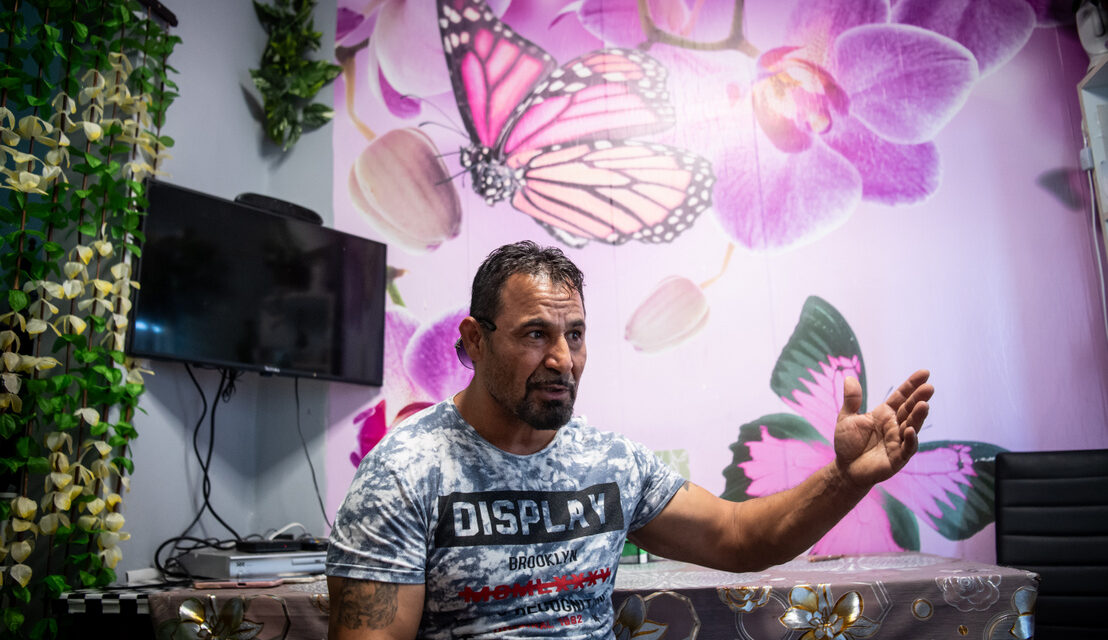Herbal, crystal, magic tobacco. The use of synthetic drugs marks a straight path to death. A segregated group in Gyöngyös gives an accurate picture of the danger drug use poses to the civilian population as well.
There was a day when I had to beat up ten people, and then of course the police from Miskolc came, they saw what I was doing, but it didn't even occur to them to take me in. One of them said he would do the same thing if he lived here.
We are visiting Gyöngyös, in the district of the northern end of the city known as Duranda, which is mostly inhabited by Roma. On the unpaved streets, young people in their twenties with small children on their arms come and go between dilapidated and already empty houses. We try to talk to several of them, but when it turns out that we want to ask them about the presence of synthetic drugs, they walk away or say that we have come to the wrong place because there are none here.
However, the real reason for their distance is that most of the families in the 500-person segregated group are themselves involved in substance abuse or suffer the consequences. They have in common that they are both afraid. Either from the police or from the dealers. László, the gypsy man who formulated the above sentences, is the only one who dares to express his opinion honestly.
He is a kind of local superman who, relying on his physical abilities, took up the fight against the synthetic drugs that were destroying the colony.
He decided to beat the dealers when a young Hungarian boy smoked something in one of the houses, came out, collapsed and foamed at the mouth. Everything was witnessed by László's teenage son. Terrified, he informed his father, who came over, gave the boy water and waited for him to get better. As he puts it:
From then on, I beat the dealers. Some understood it, some did not.
It says:
"We have reached the point where the children's parents no longer care what they are taking. Many are drug users themselves, in Gyöngyösoroszi the mothers cook larger portions of food in order to replace it with herbals."
László had just arrived from the police, because he had been reported for self-judgment and physical assault. The confrontation took place on the day we were there. He also told the dealer sitting across from him that if he continued to sell drugs, he would beat him again. Although the complainant retracted everything during the interrogation, László expects a court hearing.
The deputy mayor Tamás Kévés accompanying us is immediately recognized by the locals, a tall boy starts discussing with him about the police station to be built in front of his house.
Another man soon appears in the gate behind him, apparently in an altered state of consciousness. Inquiring as to the reason for this, the boy reassures him that the man is "just" an alcoholic.
Later, we get an explanation from László why there is a need for a police officer lying on the narrow strip of asphalt, which is not suitable for fast driving anyway. He says that young Hungarians also come here after dark in their cars to get the stuff, but they don't feel very safe, so when they get the drug, they drive away with horrible engine noise and high speed.
Because of this, the children on the street are not safe either, but László also had enough of it, so he applied for and received a social rental apartment on another street. Due to the presence of synthetic agents and consumer habits, property owners here do not have much opportunity to break out, the houses cannot be sold, their market value has dropped to zero. Tamás Kévés, showing a well-kept house considering the circumstances, says that the elderly Hungarian couple lived here before the neighborhood was destroyed, and they will certainly stay here for the rest of their lives.
There is no deviation from the chosen path
The other Roma segregated is located in the southern part of Gyöngyös, which the locals refer to as the Third Division. László, who knows drug addiction firsthand, says that it has happened more than once that a 5-kilo package was delivered there by a courier. The sender of the box is a fictitious name, the contents are fragile according to the indication, but the recipients do not know what exactly is inside. However, two young people have already been killed by the package of unknown composition.
They even come from Salgótarján for the third class and buy two or three kilos, we are talking about millions. Then they distribute it back home
explains the witness.
The drug itself is a white powder that is usually diluted with acetone and sprayed onto any support material (it can be tobacco or sage) and then smoked. It can have an exciting or calming effect, and the user doesn't even know "what the machine is throwing" that day.
Norbert Riczu, a nurse working in healthcare, has seen a lot. According to his experience, there are those who become drooling zombies, unable to move, while other material accelerates in such a way that even three muscular adults cannot restrain a 50-kilogram child. From there, you can recognize them from afar because they carry water in plastic bottles, because they feel as if they are walking in a desert and the hot sun would dry them out.
And after two or three steps from the chosen path, there is no turning back, it leads straight to death.
According to Norbert Riczu, the only chance to return is to relive the near-death experience that, thanks to luck, did not turn out to be fatal, and the person's will to live prevails. But - as he adds - this is not typical.
As we learned, many of the older members of the Roma living in Durand are willing and able to work. They are mostly employed by the public, but several also take their place next to the assembly lines of the surrounding supermarkets. The tragedy of the situation lies in the fact that herbal medicine blocks the possibility of advancement even from those teenagers who, based on the family pattern, would have some chance of doing so.
In the morning sun, the Magyar Posta bicycle delivery man meets us on the street. He says he has no idea what is in the envelopes he delivers, they are not even checked at the distributor. Gone are the days when parcels were opened. The police recently held a rally at a nearby school. László says that a major and a lieutenant colonel also appeared. On the forum, they asked if they see or find out anything, to report it to them as soon as possible. A few hours later, László called the given number, told what kind of car the material was brought in, what the license plate number was, where the goods were, who brought them... Then nothing happened.
The whole city is out of it
The use of synthetic substances is causing seemingly intractable problems in many settlements starting from Budapest. However, in the 30,000-person settlement in Heves county, almost all residents suffer from it, as both the northern and southern parts of the town are heavily infected, and Duranda is only an arm's length away from the center of the settlement. In addition, Tura and Bag, located half an hour from Gyöngyös, are considered central distribution points on the drug map of Hungary, and the route of herbalists can be easily traced in the city even for those who would prefer not to know about them.
Deputy mayor Tamás Kévés does not want to say more about the other two mentioned settlements, so as not to disturb the police measures. However, he reveals that, according to his knowledge, catching a serious dealer requires approximately one year of preparatory investigative work. For him, this is not reassuring at all, he says, so it is difficult to fight this harmful phenomenon. The sense of security of the city's residents is constantly deteriorating, as the number of thefts and break-ins that are still small in value is on the rise, which is why they do not go to the police. Since no proceedings are initiated because of them, they are not included in the statistics, i.e. they remain invisible to the decision-makers.
Featured image: Tamás Kaszás/Index












